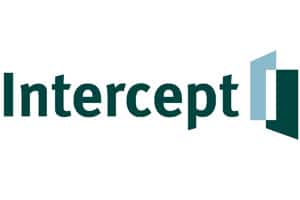
Intercept has presented further data backing the efficacy of Ocaliva in non-alcoholic steatohepatitis (NASH), but side effects are still making investors nervous.
Shares in the company fell 13% yesterday after the new data was presented at the European Association for the Study of the Liver (EASL) annual meeting on a subgroup of patients taking Ocaliva (obeticholic acid), which is vying to become the first drug to be approved for the fatty liver disease.
The new analysis came from a group of 668 patients with liver fibrosis from the REGENERATE study – first reported earlier this year – and revealed that three times as many patients on the higher 25mg dose of Ocaliva saw an improvement of two stages or more in their liver fibrosis compared to placebo (13.3% versus 4.5%).
That backed up earlier results showing that Ocaliva 25mg (but not a lower, more tolerable 10mg dose) met the primary endpoint of fibrosis improvement (≥1 stage) with no worsening of NASH in 23.1% of patients, compared to 11.9% of placebo patients, at the planned 18-month interim analysis. A co-primary endpoint of resolving NASH – defined as either no fatty liver disease or fatty liver without inflammation – was however missed at both doses of the drug.
Intercept also reported new results showing that Ocaliva 25mg performed better than placebo on other underlying NASH features, including a 35% greater improvement in hepatocellular ballooning and 44% in lobular inflammation.
The mixed efficacy data, coupled with safety results revealing that more than half of patients on the 25mg dose experienced itching (pruritus) that in 9% was sufficiently severe for them to abandon treatment, has pegged back enthusiasm. A Bloomberg analyst, Asthika Goonewardene, said that getting to market first will count for little if “you can’t follow through and make the market happen.”
REGENERATE committee chair Zobair Younossi of Virginia Commonwealth University in the US told EASL however that “halting or reversing fibrosis is a central therapeutic objective for patients with NASH, so the results from the 18-month interim analysis of REGENERATE are highly meaningful and clinically important.”
He went on to say that Ocaliva “also improves other important measures of liver health, including the key underlying drivers of NASH and biochemical tests that clinicians routinely monitor when managing patients in the real world.”
NASH, which is characterised by a build-up of fat and scarring in the liver, is thought to afflict up to 50 million people in the US, in many of them as consequence of obesity and diabetes. Some estimates put the market potential at more than $20bn.
Intercept’s drug will come up against a host of other NASH candidates coming through the pipeline competition is shaping up to be fierce in the coming years. One of those – Gilead’s selonsertib – recently failed a phase 3 trial in patients with advanced (stage 4) fibrosis, although Gilead is still hopeful that its drug will be effective in earlier-stage disease.




